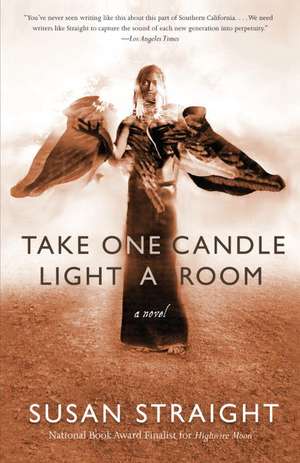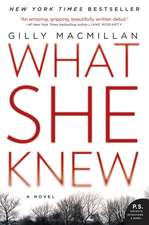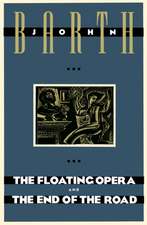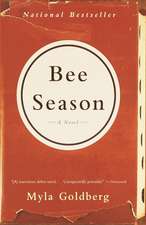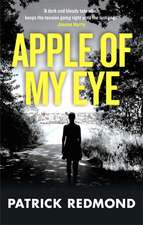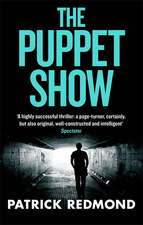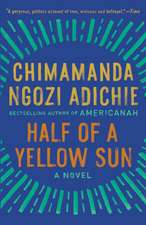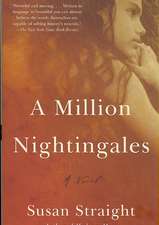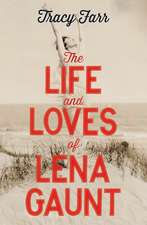Take One Candle Light a Room
Autor Susan Straighten Limba Engleză Paperback – 29 feb 2012
From the author of A Million Nightingales (“a writer of exceptional gifts and grace”—Joyce Carol Oates) comes a luminous new novel about the forces that tear families apart and the ties that bind them together.
Fantine Antoine is a travel writer, a profession that keeps her happily away from her Southern California home. When she returns to mark the fifth anniversary of the murder of her closest childhood friend, Glorette, she finds herself pulled into the tumultuous life of Glorette’s twenty-two-year-old son—and Fantine’s godson—Victor. After getting involved in a shooting, Victor has fled to New Orleans. Together with her father, Fantine follows Victor, determined to help him avoid the criminal future that he suddenly seems destined for. On this journey her father will reveal the wrenching secrets of his past, and Fantine will be compelled to question the most essential choices she’s made in her life.
Preț: 118.44 lei
Nou
Puncte Express: 178
Preț estimativ în valută:
22.66€ • 23.75$ • 18.74£
22.66€ • 23.75$ • 18.74£
Carte disponibilă
Livrare economică 21 martie-04 aprilie
Preluare comenzi: 021 569.72.76
Specificații
ISBN-13: 9780307477378
ISBN-10: 0307477371
Pagini: 336
Dimensiuni: 133 x 205 x 24 mm
Greutate: 0.27 kg
Editura: Anchor Books
ISBN-10: 0307477371
Pagini: 336
Dimensiuni: 133 x 205 x 24 mm
Greutate: 0.27 kg
Editura: Anchor Books
Notă biografică
Susan Straight is the author of six novels, including A Million Nightingales and the National Book Award finalist Highwire Moon. She has written for The New York Times Magazine, the Los Angeles Times, Harper’s Magazine, and NPR’s All Things Considered. Her short stories have won an Edgar Award and an O. Henry Award. She teaches at the University of California, Riverside.
Extras
TOY DISTRICT
“YOU A LIE!” someone shouted from the alleyway near where I walked downtown, where homeless men had congregated, and it sent me directly to my childhood. “You a damn lie!”
That was how people accused each other back in Rio Seco. Not “That’s a lie,” or “You’re a liar.”
You were the lie.
“I ain’t no lie, you drunk-ass—”
The shouts faded when I left the hot sidewalk that smelled faintly of beer and pee and onions, off Spring Street, and went into the lobby of a beautifully restored building that used to be a toy factory. Two people were already in the elevator. The young woman held the door for me and smiled.
“Hi, I’m Donovan,” she said. “I’m the publicist’s assistant. What a great building!”
“It used to be like a Third World country on this block,” the man said. Perfect pressed shirt. Artful stubble. He nodded. “Jeremiah. I’m one of Arthur’s lawyers.”
They looked at me expectantly. “FX Antoine,” I said.
Donovan, whose hair was a shining auburn bob, said, “Oh, I loved your last article in Vogue! It was on Belize, right?”
Jeremiah looked sideways at me. “Your mom named you FX?” he said.
I smiled. People from my childhood didn’t know the initials I used for my travel essays, because no one from home ever read them. I had just finished one about Oaxaca for Vogue, and an article on Bath for Travel and Leisure. At noon today, I’d gotten off a plane from Zurich. I was working on a Switzerland piece for Immerse, the funky travel magazine where I had regular assignments.
No one who read my essays or assigned them knew my real name.
“She did,” I said to Jeremiah as the elevator door opened.
The loft had cement floors the color and texture of limestone cliffs, and ebony-wood furniture, and grass growing in pots. Arthur Graves’s new place. He’d made a career by moving to a different city each year and writing a book, always about himself—a man who searched for the right apartment or house where he could paint, who always found a local woman to cook for him and another local woman to love him. He’d done Rio de Janeiro, Lisbon, San Francisco, and Avignon. After a year, he’d leave for another place. Another love.
Arthur Graves actually looked like his jacket photo—white-blond hair combed severely back from his tanned forehead and curling like commas behind his ears, black horn-rimmed glasses. Very British. He stood near a table piled with empanadas and fruit, his new book propped on a side table with a vase full of white roses. He’d been in Argentina this time. Not Buenos Aires but Córdoba, and the first chapter had been published in Immerse. So here we were—magazine writers, editors and publicists, people from the Los Angeles Times, and people from Hollywood because this book was being made into a movie.
I was headed for the empanadas when my phone rang. Rick, my editor at Immerse. “Hey, FX, you at the launch party?”
“Yes,” I said.
“Tony’s there with you?”
“No,” I said, bending to get a plate.
“Come on, get him out of the house. This guy from The Wall Street Journal said he might come. He wants to cover Immerse, and if Tony’s at the party, that makes it worthwhile.”
Tony had just won a Pulitzer for a photo essay on children without fathers—he’d gone to rural Mexico, Nigeria, Kentucky, Montana, and Iraq and shot pictures of children holding cell phones, talking to the absent fathers whose portraits were beside them. “Tony doesn’t go out on Wednesdays. And I’m not staying long—I need to go home and sleep. I only came to check out some new connections.”
“Try,” Rick said. “I’ll be there in a while.”
I stood near a window, looking outside at the heat waves shimmering off the skyline and the parked cars below glinting like silver teeth. We were on the fifth floor. Down there, homeless men were gathering in an alley, settling along the wall though it was not near sunset yet. From here, the green pup tents, brown cardboard squares, and shopping carts made the alley look like a cul-de-sac with absolute boundaries and property lines. Two men were shirtless, their dark backs wide with muscle.
Grady Jackson might be out there, arranging cardboard or sleeping however he had in the streets for so many years. Grady Jackson, who’d been a walking fool, who’d made me know I was a walking fool way back when I was fifteen. He brought me here to LA the first time, when he stole a car and I climbed into the backseat. I had thought of Grady every day of my life since then. But he was a fool for love, too, and I would never be. He was homeless, living somewhere in an alley or under an overpass, and I lived in Los Feliz in an Art Deco apartment building.
We had been kids together, and he fell in love with Glorette. Then he’d stolen something from her—the man she loved—so she’d have to marry him. But she could never love him, and when she left him, he lost his mind. He came here and lived on Skid Row. Glorette had lost her heart, and filled the emptiness every day with the smoky vapors of crack.
Tomorrow was five years since she died. She’d been killed on her thirty-fifth birthday.
Maybe Grady was dead now, too. Below, the two men were setting up a domino game. When I turned, a woman was just behind me, holding dark wine in a big goblet. The red swayed, and the low sun reflected a patch of light that swayed, too. Arthur Graves came between us and said, “Look at it! The windows were black with grime, I remember. Absolutely black.”
The woman had hair the color of champagne and a silky dress like lime sorbet. She smiled at me without showing her teeth, and my phone rang in my pocket.
I smiled back and rolled my eyes, mouthing “Excuse me” while I turned.
“You comin?” Cerise said. Not hello, how are you? She was my sister-in-law. Even though my two older brothers had left my two childhood friends, the women they’d married right when we got out of high school, Clarette and Cerise were still my sisters. “Tomorrow is five years, Fantine. They lookin for you to come home. Your maman and mine cookin right now.”
“I’m at a work thing,” I said softly. “And I just got off a plane. I’ll be there tomorrow.” I walked to the bar, picked up a glass of the red wine, and moved to a different window, hearing laughter.
“Where you been?” she said. That was the question I heard every time from my family. Wherever I’d been, it wasn’t as important as being home.
“Switzerland and France.” I knew she wouldn’t ask me anything about either place.
“So you might drop by, huh? If you ain’t too busy.” Cerise sounded pissed, like she did every single time we talked. She was mad at me for being in LA, mad at my brother Lafayette for leaving her and their kids, and mad at Glorette for being dead.
“Fantine!” she whispered harshly. “You didn’t never see her anymore! But I saw her all the time.” Cerise was crying now. “If I went to get my nails done. Or at Rite Aid. She went in there for a break.”
I didn’t know what to say. I tried to imagine what Glorette had looked like by then.
“She would just smile and say, ‘Hey, girl,’ like it wasn’t no big thang she had a bruise on her neck.”
“Cerise,” I said. “I’m coming tomorrow.”
“Shit, Fantine,” she said, her voice sharpened, clearing of sobs. I knew it was always good that she could hate on me for a minute. “Fly round the damn world every week and cain’t drive sixty-two miles home. Uh-huh.”
“I’ll be there tomorrow,” I said, and she hung up.
I took two long swallows of the wine. The sour fullness washed my throat, went behind my eyes. An older man smiled at me and lifted his own glass. “Lovely merlot from the Rio Negro Valley in Patagonia. They made sure to buy Argentinean wines.”
I nodded and took another sip. He said, “Are you working with Arthur? Are you with the publisher?”
“No,” I said. “I work for magazines.”
“Ah!” He stood beside me now. His face was that classic combination of silver eyebrows, blue eyes, and pinkish cheeks. The blush was really a mesh of fine red veins, a net of blood rising to the skin.
“I’m with his publisher now. I’ve finished my first book. Arthur teases me by calling it another Greatest Generation tome. World War II, you know.”
The last swallow of wine settled in my chest. “My father was in the war,” I said.
His eyebrows moved like pale moths. “Really? Which front?”
“In France somewhere. He never said the place.”
“He didn’t talk about his experiences,” he said, nodding.
I put down the empty glass on a beautiful ebony-wood table and gave him my best sigh and rueful grin. “He’s not much of a talker.”
“Well, he could have been traumatized. Where does he live now?” the man asked.
“Here,” I said, moving back toward the bar. “California.”
“You’re a Los Angeles native?” Clearly he wasn’t.
“No, I’m from Rio Seco. An hour east of here.” And a different universe. He held out a card, and I took it. gerald john fitzgerald. professor emeritus—boston college, department of history. “the worth of the war.”
“My da had a sense of humor when he named me,” he said, smiling so widely the little string separating his front teeth showed.
My hand was engulfed in his. “FX Antoine,” I said.
“No! With that name, you’ve got some Irish in you, too. And Spanish, no doubt.”
“It could be,” I said, and then my phone rang again. I looked down at the number. “I’m so sorry—this is my godson. I’ll be right back.”
“Your godson?” He didn’t believe me. His whole face collapsed, the blushing cheeks redder. “Well, yes. As always, with the Electronic Generation.” He actually bowed and turned away.
My own face was hot when I flipped open the phone and sat on the little black leather bench near the front door. “Victor?”
“Marraine! Where you been?” He was in a car. The music was so loud it vibrated through the phone like a dull roaring. “I think I called you six times,” he said.
“Switzerland,” I said. “I just got back today.”
“You see paintings?” He always asked what I’d done, and I tried to describe the museums and mountains and buildings to him. I usually brought him a print, but I had gotten him something bigger this time.
“I saw a panoramic painting. It was what came before movies.”
“What was it about?” He was trying not to shout.
“War.” I closed my eyes. “It’s called The Bourbaki, and it takes up the whole top floor of a building.” The painting circled around my friend Jane and me. Moroccan soldiers in their tasseled uniforms, their red fezzes like biscuits on their heads. Surrendering in the snow of Switzerland in 1871.
“That’s all you gon tell me?”
“Hundreds of soldiers coming back from a battle in winter during the Franco-Prussian War and being taken care of by Swiss villagers. Dead horses. Blood in the snow.”
He was silent, but that just meant he was thinking. Like me. Then he said, “You didn’t tell me about The Who. Professor Zelman gave me ‘Baba O’Riley.’”
“What?”
He started singing into the phone. “‘Out here in the fields, I fight for my meals! I get my back into my livin!’”
Someone in the car yelled, “Shut up, nigga. Fitty Cent just came on. Let him sing.”
“If you call that singin,” Victor shouted back.
“Who are you with?” I asked, trying to sound neutral.
“Zee and Fonso.”
Jazen and Alfonso. He’d never hung out with them in high school. Alfonso had just gotten out of prison; Clarette, who was a correctional officer, had told me. Jazen and his Navigator owned the streets near where Glorette was killed. Didn’t Victor know they might have sold his mother the rock she’d smoked that night? Boys—no, they weren’t children anymore. Glorette had Victor when we were seniors in high school. Bettina had Alfonso the year before. They were young men. But no one ever used those words anymore. They were dudes, bangers, bros, guys. Fools.
Victor said, “You gave me the hookup with the iPod and Professor Zelman gave me the hookup to The Who. They rock.”
“He’s pretty cool for a professor,” I said. Zelman had given him an award for best essay and for top honors student at the city college in Rio Seco. Victor had just graduated in June.
“‘I don’t need to fight—to prove I’m right—I don’t need to be forgiven!’”
A deep voice came from the background. “Fool, I ain’t tellin you again.” Jazen. He drove the Navigator, and ran the show.
Victor was silent for a moment. The room was nearly full of people now, and two more women came through the open door. The leather bench was so low to the floor all I could see were knees and shoes.
Strappy green sandals and sensible pumps.
“Marraine,” he said. “I need to talk to you.”
“Where are you?” I said.
“We’re comin to LA! I won tickets to a concert, and we gotta pick em up.” But then he must have held the phone closer. He whispered, “I was so happy about the tix cause I been thinkin about tomorrow. You know. And I just wanted to—tell you.”
I said carefully, “About tomorrow? Are you okay?”
He said softly, “I stayed at Fonso’s mama’s house last night. She got faded on some Hennessy. You know what she said? She said she saw my pops play the flute once at a club, with my moms. I put some Yusuf Lateef on my headphones and I was thinking about it all night. He didn’t even stay till I was born. Hated me before I even came out. And I can’t even sing.”
I closed my eyes and saw his father. Sere Dakar. Perfect Afro like a black dandelion. His long fingers on the flute.
Victor said, “Wanted to tell you about The Who. Can’t tell nobody else.”
We stayed quiet for a minute, inside the drumbeats.
Then Victor said, “Can I stay at your place for a while?”
“What?” I felt the humming fatigue in my head, and the thumping music from the phone made it worse. “Today?”
“Yeah. The concert’s on Saturday.”
“Victor,” I said. “I don’t know. I just got off a plane. I’m at a reception.”
“Is the conversation desultory or erudite?” he said, his voice light again.
“Very funny.” I was the one who’d taught him the SAT words, for the test he never got to take. “Let me call you back.”
His voice rose. “You know The Who said the F word on the radio? Way back then?” Then he whispered, his mouth right up on the phone, “Marraine—you light a candle? For my maman? Do you still pray? I don’t.”
He hung up.
“YOU A LIE!” someone shouted from the alleyway near where I walked downtown, where homeless men had congregated, and it sent me directly to my childhood. “You a damn lie!”
That was how people accused each other back in Rio Seco. Not “That’s a lie,” or “You’re a liar.”
You were the lie.
“I ain’t no lie, you drunk-ass—”
The shouts faded when I left the hot sidewalk that smelled faintly of beer and pee and onions, off Spring Street, and went into the lobby of a beautifully restored building that used to be a toy factory. Two people were already in the elevator. The young woman held the door for me and smiled.
“Hi, I’m Donovan,” she said. “I’m the publicist’s assistant. What a great building!”
“It used to be like a Third World country on this block,” the man said. Perfect pressed shirt. Artful stubble. He nodded. “Jeremiah. I’m one of Arthur’s lawyers.”
They looked at me expectantly. “FX Antoine,” I said.
Donovan, whose hair was a shining auburn bob, said, “Oh, I loved your last article in Vogue! It was on Belize, right?”
Jeremiah looked sideways at me. “Your mom named you FX?” he said.
I smiled. People from my childhood didn’t know the initials I used for my travel essays, because no one from home ever read them. I had just finished one about Oaxaca for Vogue, and an article on Bath for Travel and Leisure. At noon today, I’d gotten off a plane from Zurich. I was working on a Switzerland piece for Immerse, the funky travel magazine where I had regular assignments.
No one who read my essays or assigned them knew my real name.
“She did,” I said to Jeremiah as the elevator door opened.
The loft had cement floors the color and texture of limestone cliffs, and ebony-wood furniture, and grass growing in pots. Arthur Graves’s new place. He’d made a career by moving to a different city each year and writing a book, always about himself—a man who searched for the right apartment or house where he could paint, who always found a local woman to cook for him and another local woman to love him. He’d done Rio de Janeiro, Lisbon, San Francisco, and Avignon. After a year, he’d leave for another place. Another love.
Arthur Graves actually looked like his jacket photo—white-blond hair combed severely back from his tanned forehead and curling like commas behind his ears, black horn-rimmed glasses. Very British. He stood near a table piled with empanadas and fruit, his new book propped on a side table with a vase full of white roses. He’d been in Argentina this time. Not Buenos Aires but Córdoba, and the first chapter had been published in Immerse. So here we were—magazine writers, editors and publicists, people from the Los Angeles Times, and people from Hollywood because this book was being made into a movie.
I was headed for the empanadas when my phone rang. Rick, my editor at Immerse. “Hey, FX, you at the launch party?”
“Yes,” I said.
“Tony’s there with you?”
“No,” I said, bending to get a plate.
“Come on, get him out of the house. This guy from The Wall Street Journal said he might come. He wants to cover Immerse, and if Tony’s at the party, that makes it worthwhile.”
Tony had just won a Pulitzer for a photo essay on children without fathers—he’d gone to rural Mexico, Nigeria, Kentucky, Montana, and Iraq and shot pictures of children holding cell phones, talking to the absent fathers whose portraits were beside them. “Tony doesn’t go out on Wednesdays. And I’m not staying long—I need to go home and sleep. I only came to check out some new connections.”
“Try,” Rick said. “I’ll be there in a while.”
I stood near a window, looking outside at the heat waves shimmering off the skyline and the parked cars below glinting like silver teeth. We were on the fifth floor. Down there, homeless men were gathering in an alley, settling along the wall though it was not near sunset yet. From here, the green pup tents, brown cardboard squares, and shopping carts made the alley look like a cul-de-sac with absolute boundaries and property lines. Two men were shirtless, their dark backs wide with muscle.
Grady Jackson might be out there, arranging cardboard or sleeping however he had in the streets for so many years. Grady Jackson, who’d been a walking fool, who’d made me know I was a walking fool way back when I was fifteen. He brought me here to LA the first time, when he stole a car and I climbed into the backseat. I had thought of Grady every day of my life since then. But he was a fool for love, too, and I would never be. He was homeless, living somewhere in an alley or under an overpass, and I lived in Los Feliz in an Art Deco apartment building.
We had been kids together, and he fell in love with Glorette. Then he’d stolen something from her—the man she loved—so she’d have to marry him. But she could never love him, and when she left him, he lost his mind. He came here and lived on Skid Row. Glorette had lost her heart, and filled the emptiness every day with the smoky vapors of crack.
Tomorrow was five years since she died. She’d been killed on her thirty-fifth birthday.
Maybe Grady was dead now, too. Below, the two men were setting up a domino game. When I turned, a woman was just behind me, holding dark wine in a big goblet. The red swayed, and the low sun reflected a patch of light that swayed, too. Arthur Graves came between us and said, “Look at it! The windows were black with grime, I remember. Absolutely black.”
The woman had hair the color of champagne and a silky dress like lime sorbet. She smiled at me without showing her teeth, and my phone rang in my pocket.
I smiled back and rolled my eyes, mouthing “Excuse me” while I turned.
“You comin?” Cerise said. Not hello, how are you? She was my sister-in-law. Even though my two older brothers had left my two childhood friends, the women they’d married right when we got out of high school, Clarette and Cerise were still my sisters. “Tomorrow is five years, Fantine. They lookin for you to come home. Your maman and mine cookin right now.”
“I’m at a work thing,” I said softly. “And I just got off a plane. I’ll be there tomorrow.” I walked to the bar, picked up a glass of the red wine, and moved to a different window, hearing laughter.
“Where you been?” she said. That was the question I heard every time from my family. Wherever I’d been, it wasn’t as important as being home.
“Switzerland and France.” I knew she wouldn’t ask me anything about either place.
“So you might drop by, huh? If you ain’t too busy.” Cerise sounded pissed, like she did every single time we talked. She was mad at me for being in LA, mad at my brother Lafayette for leaving her and their kids, and mad at Glorette for being dead.
“Fantine!” she whispered harshly. “You didn’t never see her anymore! But I saw her all the time.” Cerise was crying now. “If I went to get my nails done. Or at Rite Aid. She went in there for a break.”
I didn’t know what to say. I tried to imagine what Glorette had looked like by then.
“She would just smile and say, ‘Hey, girl,’ like it wasn’t no big thang she had a bruise on her neck.”
“Cerise,” I said. “I’m coming tomorrow.”
“Shit, Fantine,” she said, her voice sharpened, clearing of sobs. I knew it was always good that she could hate on me for a minute. “Fly round the damn world every week and cain’t drive sixty-two miles home. Uh-huh.”
“I’ll be there tomorrow,” I said, and she hung up.
I took two long swallows of the wine. The sour fullness washed my throat, went behind my eyes. An older man smiled at me and lifted his own glass. “Lovely merlot from the Rio Negro Valley in Patagonia. They made sure to buy Argentinean wines.”
I nodded and took another sip. He said, “Are you working with Arthur? Are you with the publisher?”
“No,” I said. “I work for magazines.”
“Ah!” He stood beside me now. His face was that classic combination of silver eyebrows, blue eyes, and pinkish cheeks. The blush was really a mesh of fine red veins, a net of blood rising to the skin.
“I’m with his publisher now. I’ve finished my first book. Arthur teases me by calling it another Greatest Generation tome. World War II, you know.”
The last swallow of wine settled in my chest. “My father was in the war,” I said.
His eyebrows moved like pale moths. “Really? Which front?”
“In France somewhere. He never said the place.”
“He didn’t talk about his experiences,” he said, nodding.
I put down the empty glass on a beautiful ebony-wood table and gave him my best sigh and rueful grin. “He’s not much of a talker.”
“Well, he could have been traumatized. Where does he live now?” the man asked.
“Here,” I said, moving back toward the bar. “California.”
“You’re a Los Angeles native?” Clearly he wasn’t.
“No, I’m from Rio Seco. An hour east of here.” And a different universe. He held out a card, and I took it. gerald john fitzgerald. professor emeritus—boston college, department of history. “the worth of the war.”
“My da had a sense of humor when he named me,” he said, smiling so widely the little string separating his front teeth showed.
My hand was engulfed in his. “FX Antoine,” I said.
“No! With that name, you’ve got some Irish in you, too. And Spanish, no doubt.”
“It could be,” I said, and then my phone rang again. I looked down at the number. “I’m so sorry—this is my godson. I’ll be right back.”
“Your godson?” He didn’t believe me. His whole face collapsed, the blushing cheeks redder. “Well, yes. As always, with the Electronic Generation.” He actually bowed and turned away.
My own face was hot when I flipped open the phone and sat on the little black leather bench near the front door. “Victor?”
“Marraine! Where you been?” He was in a car. The music was so loud it vibrated through the phone like a dull roaring. “I think I called you six times,” he said.
“Switzerland,” I said. “I just got back today.”
“You see paintings?” He always asked what I’d done, and I tried to describe the museums and mountains and buildings to him. I usually brought him a print, but I had gotten him something bigger this time.
“I saw a panoramic painting. It was what came before movies.”
“What was it about?” He was trying not to shout.
“War.” I closed my eyes. “It’s called The Bourbaki, and it takes up the whole top floor of a building.” The painting circled around my friend Jane and me. Moroccan soldiers in their tasseled uniforms, their red fezzes like biscuits on their heads. Surrendering in the snow of Switzerland in 1871.
“That’s all you gon tell me?”
“Hundreds of soldiers coming back from a battle in winter during the Franco-Prussian War and being taken care of by Swiss villagers. Dead horses. Blood in the snow.”
He was silent, but that just meant he was thinking. Like me. Then he said, “You didn’t tell me about The Who. Professor Zelman gave me ‘Baba O’Riley.’”
“What?”
He started singing into the phone. “‘Out here in the fields, I fight for my meals! I get my back into my livin!’”
Someone in the car yelled, “Shut up, nigga. Fitty Cent just came on. Let him sing.”
“If you call that singin,” Victor shouted back.
“Who are you with?” I asked, trying to sound neutral.
“Zee and Fonso.”
Jazen and Alfonso. He’d never hung out with them in high school. Alfonso had just gotten out of prison; Clarette, who was a correctional officer, had told me. Jazen and his Navigator owned the streets near where Glorette was killed. Didn’t Victor know they might have sold his mother the rock she’d smoked that night? Boys—no, they weren’t children anymore. Glorette had Victor when we were seniors in high school. Bettina had Alfonso the year before. They were young men. But no one ever used those words anymore. They were dudes, bangers, bros, guys. Fools.
Victor said, “You gave me the hookup with the iPod and Professor Zelman gave me the hookup to The Who. They rock.”
“He’s pretty cool for a professor,” I said. Zelman had given him an award for best essay and for top honors student at the city college in Rio Seco. Victor had just graduated in June.
“‘I don’t need to fight—to prove I’m right—I don’t need to be forgiven!’”
A deep voice came from the background. “Fool, I ain’t tellin you again.” Jazen. He drove the Navigator, and ran the show.
Victor was silent for a moment. The room was nearly full of people now, and two more women came through the open door. The leather bench was so low to the floor all I could see were knees and shoes.
Strappy green sandals and sensible pumps.
“Marraine,” he said. “I need to talk to you.”
“Where are you?” I said.
“We’re comin to LA! I won tickets to a concert, and we gotta pick em up.” But then he must have held the phone closer. He whispered, “I was so happy about the tix cause I been thinkin about tomorrow. You know. And I just wanted to—tell you.”
I said carefully, “About tomorrow? Are you okay?”
He said softly, “I stayed at Fonso’s mama’s house last night. She got faded on some Hennessy. You know what she said? She said she saw my pops play the flute once at a club, with my moms. I put some Yusuf Lateef on my headphones and I was thinking about it all night. He didn’t even stay till I was born. Hated me before I even came out. And I can’t even sing.”
I closed my eyes and saw his father. Sere Dakar. Perfect Afro like a black dandelion. His long fingers on the flute.
Victor said, “Wanted to tell you about The Who. Can’t tell nobody else.”
We stayed quiet for a minute, inside the drumbeats.
Then Victor said, “Can I stay at your place for a while?”
“What?” I felt the humming fatigue in my head, and the thumping music from the phone made it worse. “Today?”
“Yeah. The concert’s on Saturday.”
“Victor,” I said. “I don’t know. I just got off a plane. I’m at a reception.”
“Is the conversation desultory or erudite?” he said, his voice light again.
“Very funny.” I was the one who’d taught him the SAT words, for the test he never got to take. “Let me call you back.”
His voice rose. “You know The Who said the F word on the radio? Way back then?” Then he whispered, his mouth right up on the phone, “Marraine—you light a candle? For my maman? Do you still pray? I don’t.”
He hung up.
Recenzii
Praise for Take One Candle Light a Room
"Layering the rich particulars of African American life into a classic tale of individual desires straining against collective constraints, Straight adds another complex, compassionate achievement to her distinguished body of work."
—The Washington Post
"Using curt slang and patois, Straight nails the way poverty and degradation can make the members of a group of young men draw closer—and make them suspicious of even well-meaning outsiders."
—The New York Times Book Review
"You've never seen writing like this about this part of Southern California—the parking lots and backyards, the dusty foliage no one bothers to name. Not only does she hope to illuminate the dusty corners, she wants to put this part of the country on the national literary map. Straight writes about the Paloma dump the way F. Scott Fitzgerald wrote about Long Island . . . We need writers like Straight to capture the sound of each new generation into perpetuity."
—Los Angeles Times
“From National Book Award finalist Straight, a searing, ultimately redemptive novel about America’s legacy of racial violence and a woman’s struggle to forge her own identity . . . Deeply rooted in the African-American experience, yet filled with insights that resonate for anyone seeking to make a better life without disowning the past. Straight writes about the thorny subject of race with sensitivity and nuance.”
—Kirkus (starred)
"In luscious prose, author Straight expertly captures the complexities of Fantine’s identity."
—Booklist
"A vivid portrait of a mixed-race family, proud yet haunted by the vagaries of the past, and of a woman and a boy trying to bridge two worlds. This is also a novel about the importance of words. Straight beautifully blends the rhythmic cadence of the Creole patois with the down-and-dirty slang of the street. With its compelling story, menacing atmosphere, and exquisite use of language, this book has something to intrigue most readers."
—Library Journal
Praise for Susan Straight
“There is no voice like Susan Straight’s . . . [She is] a major writer who has created her own world and her own place in contemporary American literature.”
—Newsday
“One of America’s gutsiest writers . . . A polyglot with an astonishing ear for how people really talk in places we hardly remember they are living.”
—Baltimore Sun
“A lyrical and intelligent storyteller, [Straight] burns clean the forbidding barriers of culture and race that blind people to one another.”
—People
“Straight is both a novelist and a mother, and has to be numbered among the Mothers of Invention who count for so much in our literature, writers such as [Louise] Erdrich and Jane Smiley, Barbara Kingsolver and Dorothy Allison.”
—The Boston Globe
“Straight turns headlines into poetry.”
—The New York Times Book Review
“Lush passages drip like Spanish moss from Straight’s prose . . . [She] writes with nuance and insinuating grace.”
—The Seattle Times
"Layering the rich particulars of African American life into a classic tale of individual desires straining against collective constraints, Straight adds another complex, compassionate achievement to her distinguished body of work."
—The Washington Post
"Using curt slang and patois, Straight nails the way poverty and degradation can make the members of a group of young men draw closer—and make them suspicious of even well-meaning outsiders."
—The New York Times Book Review
"You've never seen writing like this about this part of Southern California—the parking lots and backyards, the dusty foliage no one bothers to name. Not only does she hope to illuminate the dusty corners, she wants to put this part of the country on the national literary map. Straight writes about the Paloma dump the way F. Scott Fitzgerald wrote about Long Island . . . We need writers like Straight to capture the sound of each new generation into perpetuity."
—Los Angeles Times
“From National Book Award finalist Straight, a searing, ultimately redemptive novel about America’s legacy of racial violence and a woman’s struggle to forge her own identity . . . Deeply rooted in the African-American experience, yet filled with insights that resonate for anyone seeking to make a better life without disowning the past. Straight writes about the thorny subject of race with sensitivity and nuance.”
—Kirkus (starred)
"In luscious prose, author Straight expertly captures the complexities of Fantine’s identity."
—Booklist
"A vivid portrait of a mixed-race family, proud yet haunted by the vagaries of the past, and of a woman and a boy trying to bridge two worlds. This is also a novel about the importance of words. Straight beautifully blends the rhythmic cadence of the Creole patois with the down-and-dirty slang of the street. With its compelling story, menacing atmosphere, and exquisite use of language, this book has something to intrigue most readers."
—Library Journal
Praise for Susan Straight
“There is no voice like Susan Straight’s . . . [She is] a major writer who has created her own world and her own place in contemporary American literature.”
—Newsday
“One of America’s gutsiest writers . . . A polyglot with an astonishing ear for how people really talk in places we hardly remember they are living.”
—Baltimore Sun
“A lyrical and intelligent storyteller, [Straight] burns clean the forbidding barriers of culture and race that blind people to one another.”
—People
“Straight is both a novelist and a mother, and has to be numbered among the Mothers of Invention who count for so much in our literature, writers such as [Louise] Erdrich and Jane Smiley, Barbara Kingsolver and Dorothy Allison.”
—The Boston Globe
“Straight turns headlines into poetry.”
—The New York Times Book Review
“Lush passages drip like Spanish moss from Straight’s prose . . . [She] writes with nuance and insinuating grace.”
—The Seattle Times
